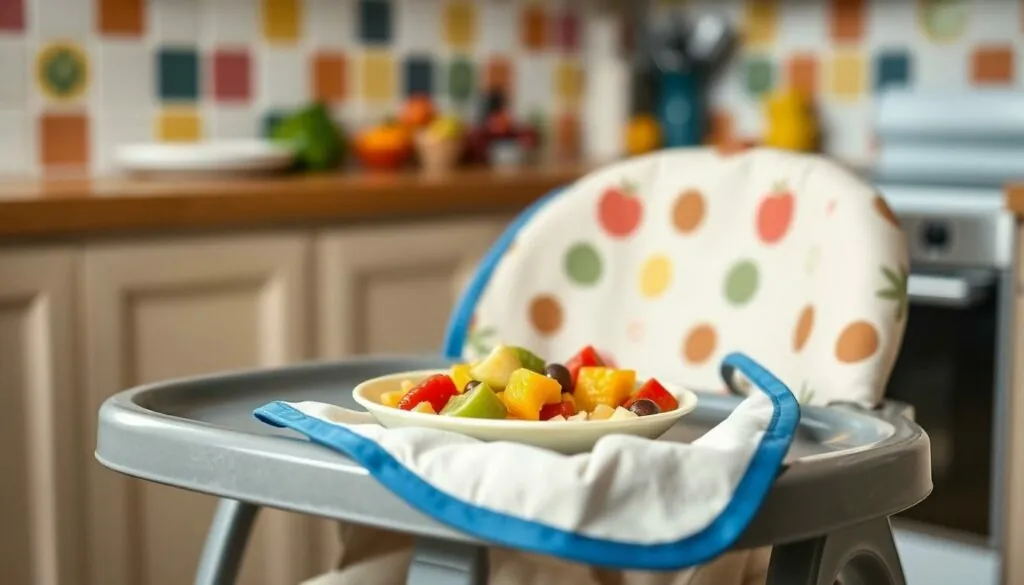Table of Contents
ToggleWhen it comes to feeding little ones, parents often find themselves navigating a culinary minefield. One of the biggest questions is: why can’t babies have salt? It turns out, the answer is more than just a culinary choice; it’s about keeping those tiny kidneys happy and healthy.
Imagine your baby’s taste buds as a blank canvas. Adding salt too early is like splashing paint on it before the masterpiece even begins. Not only can too much sodium mess with their developing organs, but it can also set them up for a lifetime of unhealthy cravings. So, while it might be tempting to sprinkle a little seasoning on their pureed peas, resisting the urge is the best recipe for their future health.
Understanding Infant Nutrition
Infant nutrition plays a vital role in a baby’s growth and development. Proper dietary choices ensure healthy organ function and set the foundation for long-lasting eating habits.
The Role of Sodium in the Diet
Sodium is essential for many bodily functions, including fluid balance and nerve function. While adults require adequate sodium, babies metabolize it differently. Their kidneys are still developing, making excessive sodium intake potentially harmful. High sodium levels can strain the kidneys, posing risks to their health. Additionally, sodium can influence taste preferences later in life. Introducing it too early often leads to a preference for salty foods, which can create dietary challenges in the future.
Recommended Sodium Intake for Babies
Guidelines from health organizations recommend that infants under 12 months consume less than 1 gram of sodium daily. The American Heart Association emphasizes that this low intake is crucial during the first year. Parents can ensure that babies stay within this limit by avoiding added salt in foods. Processed foods often contain hidden sodium, contributing to excessive intake. Breast milk and formula provide adequate sodium, meeting infants’ nutritional needs without risking kidney strain.
Why Can’t Babies Have Salt?
Babies should avoid salt to protect their health and support proper kidney development. Understanding the risks associated with salt intake during infancy is essential.
Development of the Infant Kidneys
Infant kidneys are still maturing, making them sensitive to excess sodium. This sensitivity increases the potential for strain on these developing organs. Kidneys perform several critical functions, including filtering waste and balancing fluids. Since infants metabolize sodium differently than adults, their bodies require lower sodium levels. As recommended by health organizations, sodium intake for infants under 12 months should remain below 1 gram daily. This guideline helps ensure that a baby’s kidneys develop properly without being overwhelmed.
Risks of Excess Sodium
Excess sodium poses various health risks for babies. Increased sodium intake can lead to high blood pressure and impact long-term cardiovascular health. Kidneys struggling to process excess salt might face complications later in life. Processed foods often contain hidden sodium that parents might not notice, so careful ingredient checking is necessary. Symptoms of too much sodium can include dehydration and discomfort, further emphasizing the importance of a low-sodium diet in infancy. Prioritizing minimal salt exposure sets the foundation for healthier eating habits as children grow.
Alternatives to Salt in Baby Food
Naturally enhancing the flavor of baby food can promote healthy eating habits without the need for salt.
Natural Flavor Enhancers
Herbs and spices provide excellent alternatives. Basil, cilantro, and thyme add subtle flavors to purees, making them more appealing. Fruits like apples and pears can introduce natural sweetness without added sugars. Mixing in vegetables such as sweet potatoes and carrots enhances taste while also giving essential nutrients. Cooking methods like steaming or roasting intensify flavors naturally, allowing parents to create delicious meals without seasoning. Parents can also try introducing foods gradually, allowing babies to adjust to various tastes while naturally developing their preferences.
Safe Seasoning Options
When considering safe seasonings, explore options that provide flavor without added sodium. Lemon juice can brighten dishes with a zesty kick, while cinnamon offers warmth and sweetness in fruit purees. Unsweetened coconut milk adds creaminess along with a hint of flavor. Parents might incorporate nutritional yeast for a cheesy taste, rich in vitamins and minerals. Additionally, garlic powder can provide depth without the sodium. Selecting fresh ingredients over processed ones ensures low sodium intake, fostering healthy eating habits from a young age.
Conclusion
Avoiding salt in a baby’s diet is crucial for their health and development. The delicate nature of an infant’s kidneys makes them particularly vulnerable to the effects of excess sodium. By steering clear of added salt and processed foods, parents can ensure their little ones receive the necessary nutrients without risking long-term health issues.
Utilizing natural flavor enhancers and fresh ingredients can create a rich culinary experience for babies while promoting healthier eating habits. Prioritizing a low-sodium diet lays the groundwork for a lifetime of good nutrition and well-being. This thoughtful approach not only nurtures their developing bodies but also sets the stage for a healthier future.







